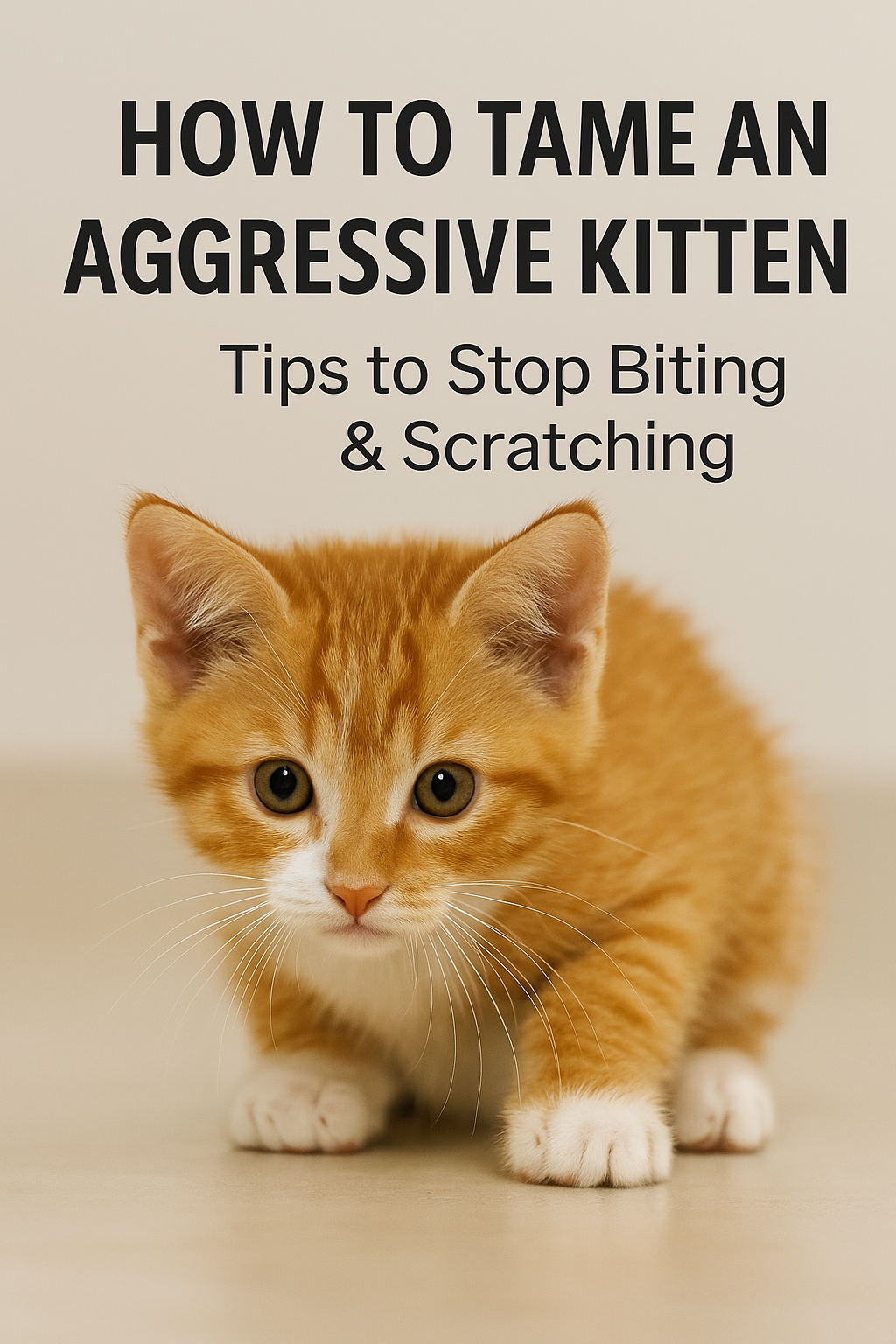
Kittens bring endless joy with their playfulness, but sometimes those tiny teeth and claws can hurt. If your kitten bites, scratches, or pounces aggressively, don’t worry this behavior is natural but can be gently corrected. Training your kitten early helps them grow into a calm, well-adjusted adult cat.
Here are “Proven tips to tame an aggressive kitten” and encourage gentler play.
1. Stop Play When It Gets Rough
If your kitten bites or scratches, immediately stop the game. Walk away or gently remove yourself. This teaches them that aggression means playtime ends.
Pro tip: Avoid shouting or physical punishment — it increases fear and aggression.
2. Don’t Use Hands or Feet as Toys
Using hands or feet encourages kittens to attack you. Instead, always use toys like wands, balls, or plush mice.
For difficult situations like giving medicine, wrap your kitten in a towel to avoid reinforcing rough play.
3. Burn Energy with Interactive Toys
Kittens have strong hunting instincts. Toys like feather wands, flirt poles, or laser pointers allow them to chase and pounce safely.
Schedule regular play sessions, a tired kitten is a calmer kitten.
4. Offer Solo Play & Enrichment
When you’re busy, make sure your kitten has puzzle feeders, treat-dispensing toys, boxes, or tunnels.
This prevents boredom, which is a big trigger for aggression.
5. Use Calm Time-Outs
If aggression starts, end the interaction calmly. No eye contact, no scolding, just step away.
Consistency is key: everyone in the house should react the same way.
6. Stay Patient & Consistent
Taming kitten aggression takes time. Use the same cues and rules daily. Mixed signals confuse your kitten and delay progress.
7. Reward Calm Behavior
When your kitten plays gently, reward with treats, cuddles, or praise. Positive reinforcement builds trust and teaches them that calm behavior gets attention.
8. Learn Kitten Body Language
Look out for signs of overstimulation:
– Tail flicking
– Ears flattened
– Whiskers pulled back
These signals mean your kitten may lash out. Pause or change the activity before aggression begins.
Why It Matters
Teaching your kitten to play gently builds trust, confidence, and a lifelong bond. It also prevents injuries, reduces stress, and helps your cat grow into a loving companion.
If aggression seems extreme, consult a vet or cat behaviorist to rule out medical issues.
Final Word
Taming an aggressive kitten isn’t about punishment, it’s about patience, consistency, and love.With the right training, toys, and rewards, your little tiger can grow into a calm, affectionate cat.
Tags: Kitten Aggression, Kitten Training Tips, Cat Behavior Training, Kitten Biting and Scratching, Aggressive Kitten Solutions, Cat Parenting India, Kitten Play Behavior

